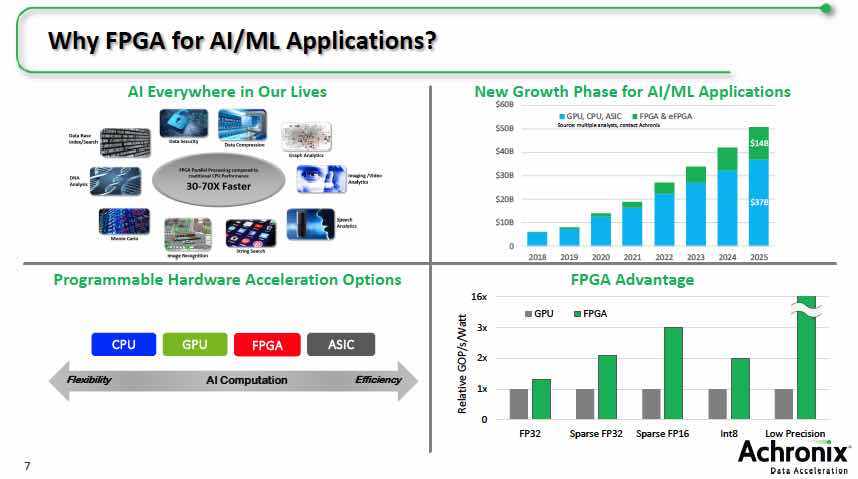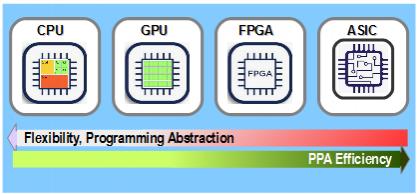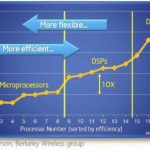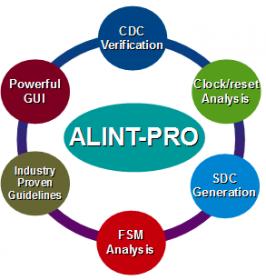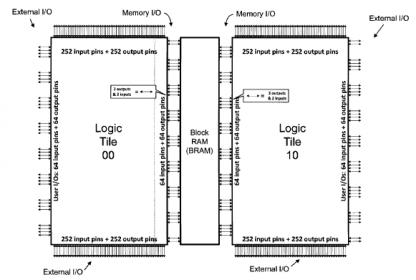With their current line-up of embeddable and discrete FPGA products, Achronix has made a big impact on their markets. They started with their Speedster FPGA standard products, and then essentially created a brand-new market for embeddable FPGA IP cores. They have just announced a new generation of their Speedcore embeddable… Read More
Tag: fpga
Webinar: ASIC and FPGA Functional Verification Study
ASIC or FPGA? Each design style has earned designers’ votes depending on the level of urgency, application complexity and funding of their assigned projects. While it is feasible to transition from ASIC to FPGA design or vice versa, such a move is usually done across project refresh instead of midcourse.
Avionics and Embedded FPGA IP
The design of electronic systems for aerospace applications shares many of the same constraints as apply to consumer products – e.g., cost (including NRE), power dissipation, size, time-to-market. Both market segments are driven to leverage the integration benefits of process scaling. … Read More
Cloud FPGA Optimal Design Closure, Synthesis, and Timing Using Plunify’s AI Strategies
Plunify, powered by machine learning and the cloud, delivers cloud-based solutions and optimization software to enable a better quality of results, higher productivity and better efficiency for design. Plunify is a software company in the Electronic Design Market with a focus on FPGA. It was founded in 2009, has its HQ in Singapore… Read More
Neural Network Efficiency with Embedded FPGA’s
The traditional metrics for evaluating IP are performance, power, and area, commonly abbreviated as PPA. Viewed independently, PPA measures can be difficult to assess. As an example, design constraints that are purely based on performance, without concern for the associated power dissipation and circuit area, are increasingly… Read More
An FPGA Industry Veteran’s View of Future
There are tectonic changes happening in the world of FPGAs. A lot has changed since their introduction in the 80’s. Back then they were mostly used to implement state machines or glue logic. Subsequently they grew more complex with the addition of high speed IOs, eRAM, DSPs, other processors and other IP. More recently though FPGAs… Read More
Enhancing Early Static FSM
Finite state machines (FSMs) are widely adopted as part of reactive systems to capture their dynamic behaviors using a limited number of modes or states that usually change according to the applied circumstances. Some terminologies are frequently used to describe the FSM characteristics: state, transition, condition and … Read More
Block RAM integration for an Embedded FPGA
The upcoming Design Automation Conference in San Francisco includes a very interesting session –“Has the Time for Embedded FPGA Come at Last?” Periodically, I’ve been having coffee with the team at Flex Logix, to get their perspective on this very question – specifically, to learn about the key features that customers are seeking… Read More
Achronix Momentum Building with Revenue Growth, Product/Staff Expansion, New HQ
5G Wireless, Network Acceleration, Data centers, Machine Learning, Compression, Encryption fueling the Growth
Building on its increasing momentum, Achronix Semiconductor Corporation held a ribbon-cutting ceremony on Tuesday, April 25, with the presence of Santa Clara’s Mayor Lisa Gillmor, customers, and partners, employees… Read More
RDC – A Cousin To CDC
In a post-silicon bringup, it is customary to bring the design into a known state prior to applying further testing sequences. This is achieved through a Power-on-Reset (POR) or similar reset strategy which translates to initializing all the storage elements to a known state.
During design implementation, varying degrees of… Read More


